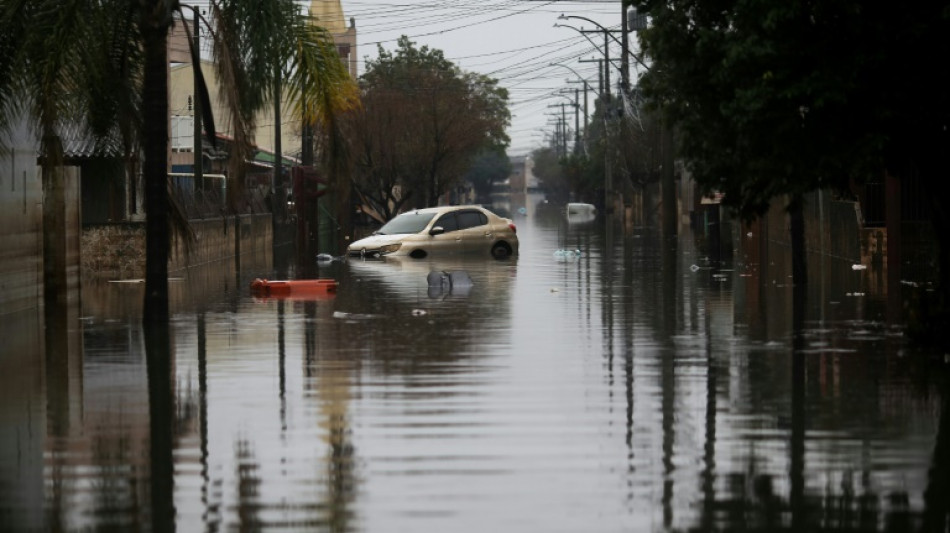

Cases of bacterial disease rise in Brazil's flooded south
Brazilian authorities on Tuesday reported an increase in cases of leptospirosis, a bacterial disease transmitted by rats, in the flooded south, parts of which have been under water for a month.
According to the latest figures from the Rio Grande do Sul State Health Secretariat, five people are confirmed to have died from the disease, while another nine deaths are being investigated.
Authorities have recorded 124 cases, and are verifying 922 others.
The state of Rio Grande do Sul has been battered by rain for weeks, and flooded rivers have transformed the streets of towns and cities into putrid, murky rivers.
The latest official figures, excluding leptospirosis deaths, show that 169 people have died and 53 are still missing.
Some 600,000 people have been displaced.
Leptospirosis is spread via the urine of infected animals, such as rodents and livestock, which contaminates soil or water. The bacteria can survive for weeks, and outbreaks in humans often take place after heavy rain or flooding.
Symptoms can appear from two days to four weeks after exposure, and are similar to that of the flu or dengue, such as headaches, fever and chills.
More serious cases can affect the liver or kidneys.
Brazilian authorities have set up a laboratory to test for suspected cases, and have implemented a vast social media prevention campaign.
"Have you been digging in the mud or walking through flood water and have symptoms of leptospirosis? Go to a health post," said Arita Bergmann, health secretary of Rio Grande do Sul, in a video on Instagram.
"Treatment cannot wait, do not stay at home waiting for it to pass, because it can develop into a serious illness," she added.
F.W.Simon--LiLuX



